#Saudi Images
Text
The Seven Wonders of AlUla
The Seven Wonders of AlUla
One of the mainstream destinations that Saudi Arabia has offered, since opening its doors, to visitors from all over the world in September 2019 is AlUla.
From then on, then AlUla has become a household word when it comes to the best places in Saudi Arabia because of its landscape that are like made from the Middle-Earth, the natural rock formations in particular. That’s an understatement.
The…
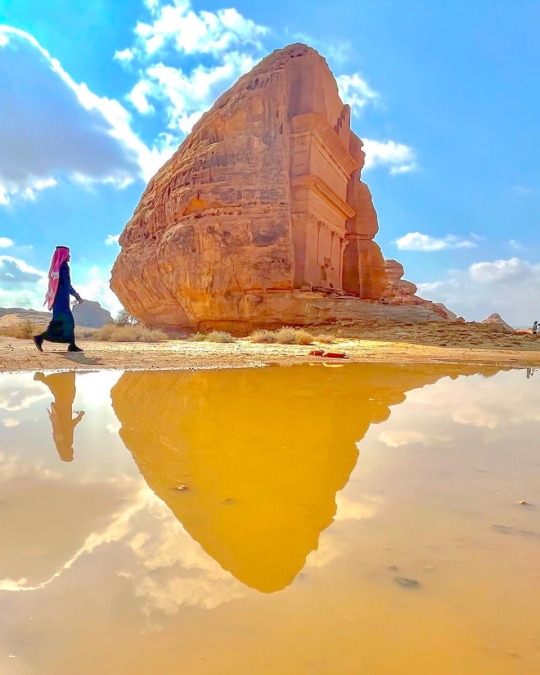
View On WordPress
#Arab 360#Destination AlUla#Destination KSA#Experience AlUla#Life in Saudi Arabia#Lovin Saudi#Saudi Images#Saudi Tourism
0 notes
Text


The Cradle Berthe Morisot (1872) // Charles Leclerc and his grid kid at the Saudi Arabian Grand Prix (2024)
#Sorry this is all i could think of when i saw this image..#studied impressionism last year and Omg the amount of i times i had to talk abt the composition of this painting specifically#i’m finally free but i see it everywhere……..#saudi arabian gp 2024#charles leclerc#ferrari#formula 1
396 notes
·
View notes
Text
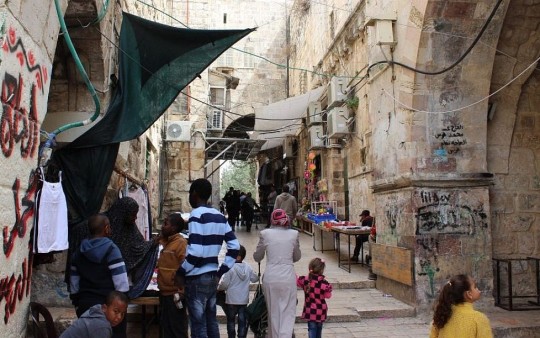
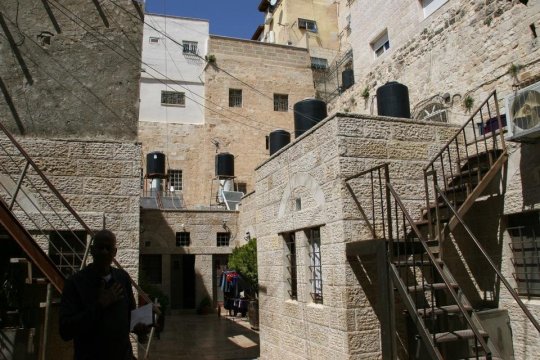
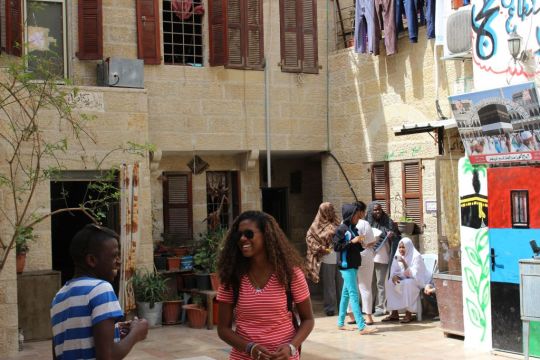

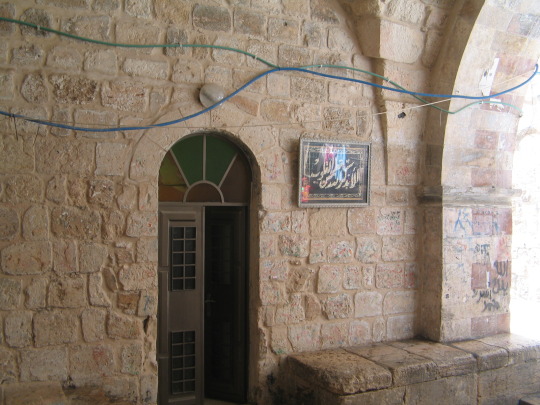
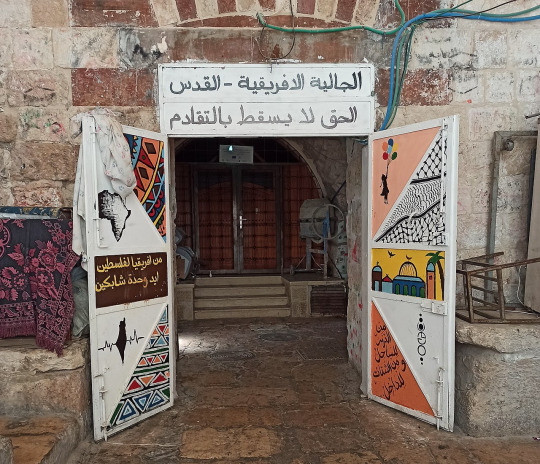
pictures from the old city of jerusalem's "african quarter", which comprises of ribat al-mansuri and ribat al-basiri. mamluks built the compounds in the late 13th century to house muslim pilgrims and the poor. ottomans used them as prisons, and the british closed the prisons when they occupied jerusalem in 1917. the ribats then came under the ownership of the islamic waqf, and were leased to the local afro-palestinian community.
afro-palestinians have an array of origins. like some other diaspora communities in palestine, some came through pilgrimage - al-aqsa was on their hajj path, and while many would visit to pray there, some decided to settle in jerusalem. there are also some who came to palestine enslaved or conscripted, most recently to ottomans. some came during the time of the british mandate, many as conscripted laborers to the british. afro-palestinians who can trace their ancestry do so to nigeria, chad, senegal, or sudan.
jerusalemite afro-palestinians were employed to guard al-aqsa throughout the ottoman period. during the 1948 palestine war, some joined the arab liberation army and fought with fellow palestinians to defend al-aqsa and their presence in jerusalem. the position of guards has been taken by occupation soldiers since the 1967 war, after which a quarter of the afro-palestinian population became refugees in surrounding countries.
jerusalem's afro-palestinian community still live in the compounds today, which also house the local african community society. (the door in the last picture is theirs.) afro-palestinians as a whole face the same legal, social, and economic restrictions and maltreatment as other palestinians, compounded with the same anti-black racism from israeli government and police which ethiopian jews and eritrean asylum seekers face, which result in a form of "passport racism" unique to them.
#palestine#architecture#muslim#diasporic palestine#my posts#see image description on 6th pic for translation#also worth mentioning that all four of the 'origin' countries are majority-muslim or had large muslim communities in case u didnt know#(though i wouldn’t doubt it if some nigerian or sudanese-palestinians came in the mandate era)#i feel like most of this blog's main demographic may know about sudan but maybe not the other three#there’s other black populations in pretty much every other me country who came for similar reasons#though pilgrimage is something really unique to palestine#and i’d guess also maybe modern day saudi arabia#though there’s large armenian communities in lebanon and syria who were established bc of pilgrimage to palestine
473 notes
·
View notes
Text

Come on sweetheart, we need a little romantic walk.

Max Verstappen + Charles Leclerc “hug” (*word used on Getty images not mine 😏) in parc fermé | F1 Grand Prix of Saudi Arabia, in Jeddah, March 2022.
📷 Clive Rose (Getty Images)
#***MY EDITS#charles leclerc#max verstappen#lestappen#saudi arabia gp 2022#lestappen is not a secret anymore even for Getty images 🤫#it’s just something that everybody know but nobody talk#<= a f*** omerta 🙄
177 notes
·
View notes
Text
Brazil police allege Bolsonaro received cash from $68,000 sale of luxury Saudi gifts
Brazil’s federal police on Friday alleged former President Jair Bolsonaro received cash from the nearly $70,000 sale of two luxury watches he received as gifts from Saudi Arabia while in office, posing another potential blow for the embattled far-right leader.

Earlier in the day, officers raided the homes and offices of several people purportedly involved in the case, including a four-star army general. Bolsonaro has denied any wrongdoing involving the gifts.
A Federal Police officer said the force is seeking authoriziation to access the personal banking and financial information of Bolsonaro. The officer, who spoke on condition of anonymity to discuss the investigation, said the Federal Police had asked for help from the FBI.
Bolsonaro’s lawyers said in a statement that he would authorize Brazil’s judiciary to have access to his banking records.
“President Bolsonaro has never embezzled or misplaced any public assets,” it said.
Continue reading.
#brazil#politics#brazilian politics#jair bolsonaro#corruption#mod nise da silveira#image description in alt#saudi jewels
10 notes
·
View notes
Text
Just a reminder that some fans seems to need more often than not:
Body shaming has never been okay, will never be ok and can lead to eating disorders.
Do fucking better!
#tw weight mention#tw eating disorders#tw body shaming#tw body image#f1#max verstappen#saudi gp 2023
17 notes
·
View notes
Text
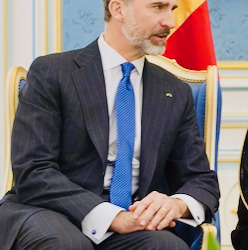
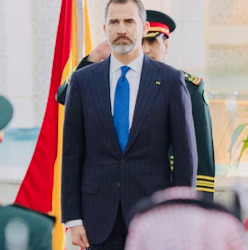
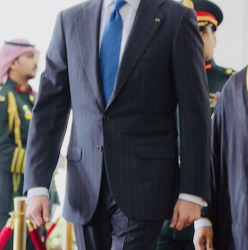
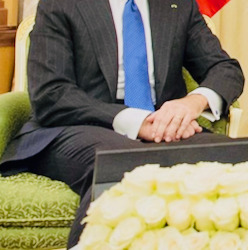
Through the Years → Felipe VI of Spain (1,992/∞)
15 January 2017 | King Felipe Of Spain is welcomed by King of Saudi Arabia, Salman bin Abdulaziz, during an official welcoming ceremony at Al Yamama Palace in Riyadh, Saudi Arabia. (Photo by Bandar Algaloud / Saudi Kingdom's Council / Handout/Anadolu Agency/Getty Images)
#King Felipe VI#Spain#2017#Bandar Algaloud#Saudi Kingdom's Council#Handout#Anadolu Agency#Getty Images#through the years: Felipe
3 notes
·
View notes
Text
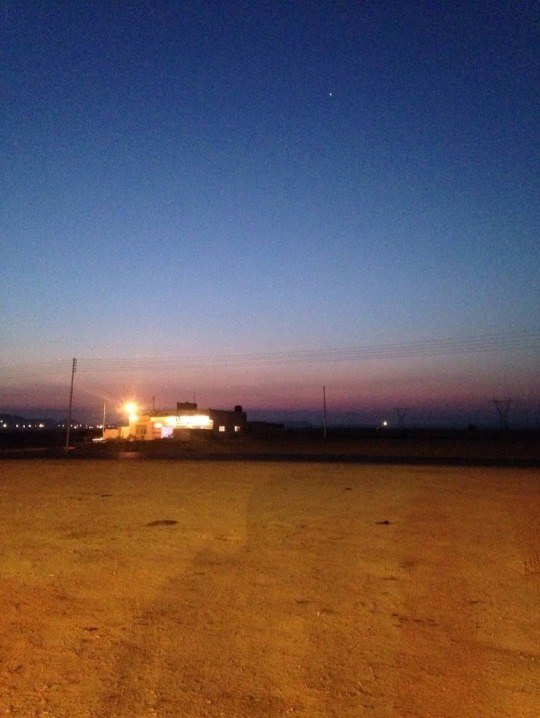
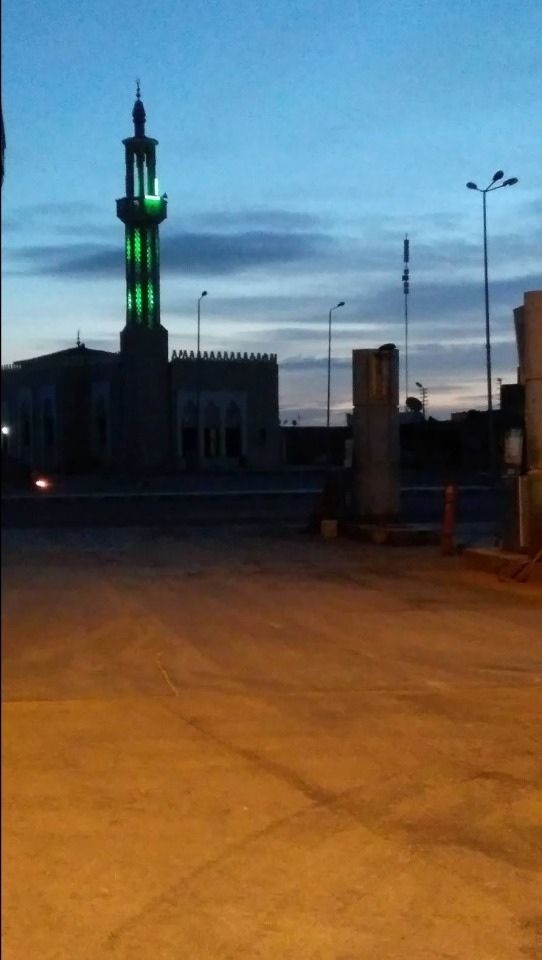
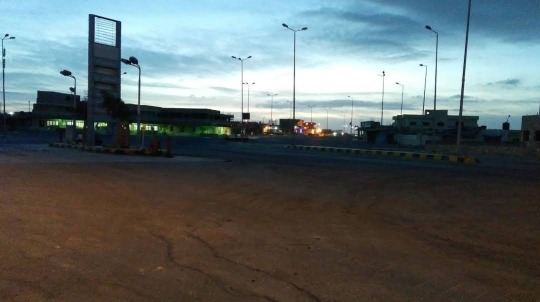
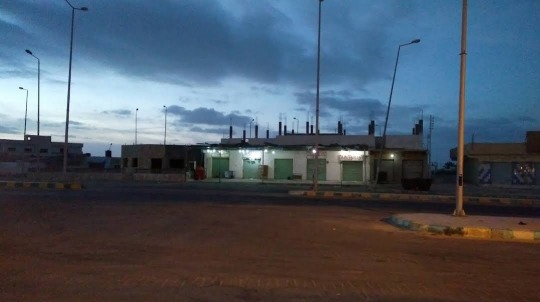
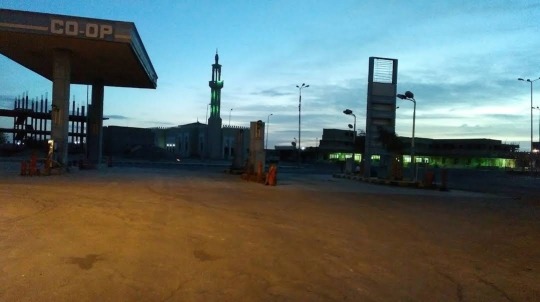
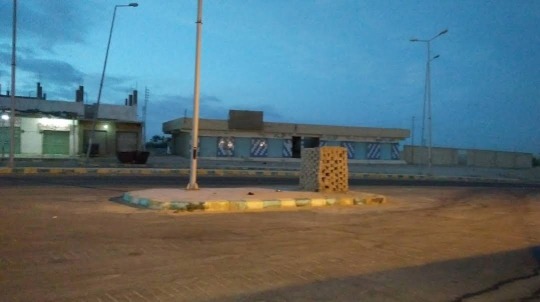
#aesthetic#liminal#dreamcore#weirdcore#saudi arabia#world#travel#night time photography#photography#found image#found images
4 notes
·
View notes
Text
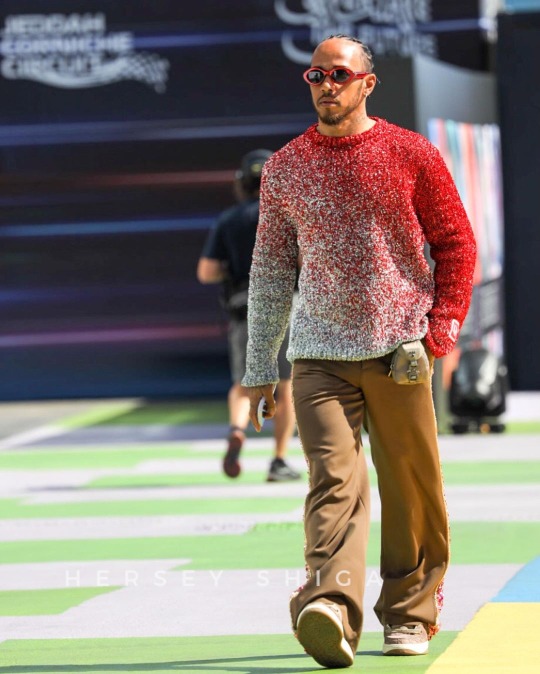
Lewis Hamilton - Sunday, Saudi Arabian Grand Prix - Jeddah Corniche Circuit - March 19th, 2023
#why are there zero pics on getty images from today#so confused#the drivers arrived like 3 hours ago#lewis hamilton#saudi arabian gp 2023
5 notes
·
View notes
Text
Saudi Arabia and Middle East Radioisotope Market is Poised for High Growth Owing to Growing Medical Applications
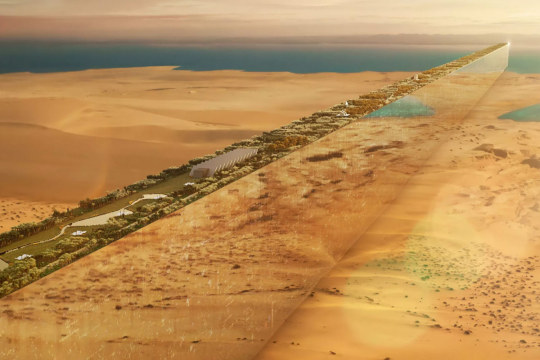
Radioisotopes find numerous applications in the field of medicine for purposes such as diagnosis and treatment of certain medical conditions. Technetium-99m and iodine-131 are among the most widely used medical radioisotopes globally. The growing prevalence of chronic diseases such as cancer is propelling the demand for nuclear medicine diagnostics and therapies, which in turn is driving the radioisotope market in the region.
The Saudi Arabia and Middle East radioisotope market is currently valued at US$ 691.3 million in 2024 and is expected to exhibit a CAGR of 1.1% over the forecast period of 2024-2031.
Key Takeaways
Key players: Key players operating in the Saudi Arabia And Middle East Radioisotope Market Growth are GE Healthcare, IBA, Sumitomo Corporation, BWX Technologies, Inc., Advanced Cyclotron Systems, Inc., Navidea Biopharmaceuticals, Inc., BEST Cyclotron Systems Inc., NorthStar Medical Radioisotopes, Siemens Healthineers, Novartis, Moravek Biomedicals Inc., Nordion, Research Products International Corp., Cardinal Health Nuclear Pharmacy, American Radiolabeled Chem. Inc., Perkin-Elmer (NEN), IRE, Eckert & Ziegler., Curium, ANSTO, HTA Co., Ltd, Isotope JSC., SAMIRA, OECD-NEA, Telix Pharmaceuticals Limited., The State Atomic Energy Corporation, ROSATOM, ISOTOPIA, NTP Radioisotopes, KFSH&RC, Jordan Research and Training Reactor, Esfahan Nuclear Technology Center, ETRR-2, and SRR-1.
Key players operating in the Saudi Arabia and Middle East radioisotope market include GE Healthcare, IBA, Sumitomo Corporation, BWX Technologies, Inc., among others.
PEST Analysis
Political: The radioisotope market in Saudi Arabia and Middle East region is greatly influenced by the political stability of the region. Political tensions and conflicts impact the supply chain and distribution channels of radioisotopes.
Economic: The economic growth and development in the healthcare sector will drive the demand for radioisotopes used in diagnostic imaging and therapeutic procedures. Public healthcare spending influences the adoption of advanced medical technologies using radioisotopes.
Social: A growing and ageing population coupled with increasing incidence of chronic diseases is enhancing the social need for accessible and affordable healthcare services. This is positively impacting the utilization of radioisotopes in medical diagnostics and treatment.
Get More Insights On This Topic: Saudi Arabia and Middle East Radioisotope Market
#Saudi Arabia#Middle East#Radioisotope Market#Nuclear Medicine#Healthcare#Radiopharmaceuticals#Isotopes#Medical Imaging
0 notes
Text
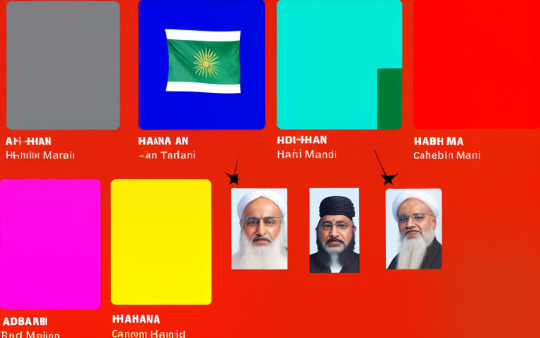
Anthony Fineran, Martin Saudi Vault, 2024
0 notes
Text
#Saudi Arabia X-ray Imaging Market#Market Size#Market Share#Market Trends#Market Analysis#Industry Survey#Market Demand#Top Major Key Player#Market Estimate#Market Segments#Industry Data
0 notes
Text
Boycott Israeli Dates this Ramadan, from Call 2 Action Now, 28/Feb/2024: (caption under images)

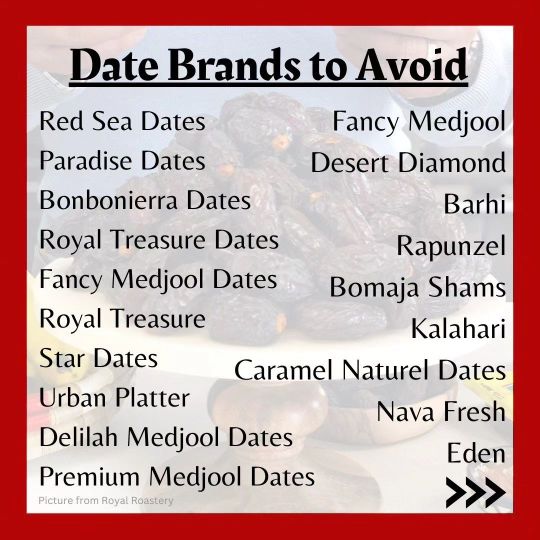



This Ramadan, don’t break your fast with an Israeli date. Stand in solidarity with the Palestinian people.
Israel’s genocidal assault on Palestinians in the Gaza Strip has now killed tens of thousands. Palestinians, facing down Israel’s catastrophic violence, call on us to boycott Israeli products in solidarity with their struggle for freedom.
Follow this quick guide to boycotting Israeli dates:
• Always check the label when buying dates. Don’t buy dates that are produced or packaged in Israel or its West Bank settlements. If no country of origin can be found on the box, check the retailer’s website.
• One of Israel’s largest exporters is called Hadiklaim. It sells dates in supermarkets under these names: King Solomon, Jordan River and Jordan River Bio-Top, as well as under the labels of supermarket chains. Check the box carefully, if the dates were “exported by Hadiklaim” – don’t buy them.
• Avoid these companies: Mehadrin, MTex, Edom, Carmel Agrexco, and Arava
#checkthelabel is not enough. Israel has been caught labelling their dates as ‘produce of Palestine’. Tesco, Sainsbury’s, Waitrose, M&S, Morrison, Aldi, Lidl and Asda package Israeli dates under their own labels!
Buy dates from Zaytoun, Alard, Yaffa, and Holy Land Date all support Palestinian Farmers. If you cannot get hold of these brands then buy dates from Tunisia, Saudi Arabia, Iran, Pakistan, UAE and Algeria.
#ramadan#muslim#ramadhan#palestine#free palestine#gaza#free gaza#from the river to the sea palestine will be free#i stand with palestine#rafah#save rafah#palestinian lives matter#boycott israeli products#boycott israel#defund israel
13K notes
·
View notes
Text

#artificial intelligence#ai#anime#ai generated#ai artwork#ai image#ai art#chatgpt#japanese animation#animation#native american#arabic#saudi arabia#manga art#pakistan#gaza#our lady of the passion#palestine#free palestine#black men#mextagram#mecha#mexican artist#tumblr mexa#mexican
1 note
·
View note
Text
World: The West Isn't Buying Into China's Year of Diplomacy

Chinese President Xi Jinping at a press conference in Shaanxi, on May 19, 2023. A new poll indicates that the West does not believe that China is contributing to Global Security. Florence Lo/Pool/AFP Via Getty Images
Western nations increasingly see China as an interventionist power that is not improving global security, according to recent polling, as Beijing struggles to square its desired peacemaker image with the political realities of its expanding global influence.
The Pew Research Center conducted a 30,000-person survey across 24 nations between February and May and found that people living in European, North American and Indo-Pacific democracies are particularly wary of China's influence. The sentiment was less strong, though still present, among African and South American respondents.
A median of 71 percent of the 30,000 people polled felt that China does not contribute either much or at all to international peace and stability, versus 23 percent who felt China does. Americans (80 percent), Dutch (86 percent), British (80 percent), Germans (80 percent), and French (75 percent) were among those who felt most strongly that Beijing is a negative influence on global affairs.
Democratic Indo-Pacific nations emphatically agreed, with 87 percent of South Koreans, 85 percent of Australians, and 85 percent of Japanese feeling the same.
The list of nations—the United States, Canada, France, Germany, Greece, Italy, Japan, Netherlands, South Korea, Spain, Sweden, the United Kingdom, Argentina, Brazil, Hungary, India, Indonesia, Israel, Kenya, Mexico, Nigeria, Poland and South Africa, and Australia—is dominated by Western liberal democracies, with inherent ideological tensions likely somewhat explaining the negative views of Chinese foreign influence.
But only in Indonesia, Kenya and Nigeria did a majority of respondents say Beijing contributes either a fair amount or a great deal to international peace and stability.
Newsweek reached out to the Chinese Foreign Ministry via email for comment.
China—already considered by many an economic and technological superpower—is still shaping its military and diplomatic clout abroad. Major decades-long investment in the former is openly intended to eventually challenge American hegemony, but on the diplomatic battlefield, Beijing is following a less publicly combative path.
Among the salient diplomatic issues that have helped shape global opinions of China this year are one striking success and one ongoing failure.
The former was the landmark Iran-Saudi Arabia normalization deal signed in April, in which China unexpectedly brokered a détente few thought likely given the deep and historic animosity between the Middle East's power players.
But China's unconvincing neutrality regarding Russia's war on Ukraine has somewhat eroded global trust in Beijing, particularly among the Euro-Atlantic and Indo-Pacific nations rallying to Kyiv's cause. China's de facto backing for Russia has undermined its continued calls for peace and the anemic peace plan it proposed in March.
North vs. South
Larger issues involving China—among them the fate of Taiwan, the situation in the South China Sea, lingering frustrations about the pandemic, the brewing showdown with the U.S., human rights, and concerns about political interference—have "completely dwarfed" Beijing's diplomatic efforts, Andrew Small, a senior transatlantic fellow at the German Marshall Fund, told Newsweek.
"Publics have evidently not seen either the Saudi-Iranian deal as particularly significant or the Chinese efforts on Ukraine as particularly credible," Small said.
Small noted Beijing will not necessarily be too concerned with continued Western skepticism.
"In one sense, the argument for what China has been trying to do on Ukraine and in some of these other efforts was positioning in the 'Global South,'" he said. "The view on their side had been that no one in Europe is going to take this seriously, but they are able to position themselves through this in the Global South as an actor that approaches these issues in a neutral way."
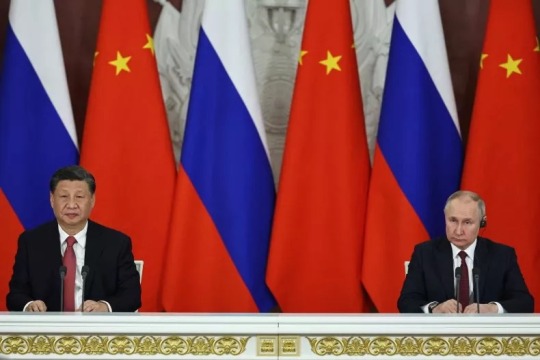
Russian President Vladimir Putin (R) and China's President Xi Jinping deliver a joint statement in Moscow, on March 21, 2023. China's de facto support of Russia's war on Ukraine has angered Western nations. Mikhail Tereshchenko/Sputnik/AFP Via Getty Images
But the poll's findings also suggest that Beijing's self-framing might not be playing out as it hoped. A median of 57 percent of those surveyed said they felt China interferes in other countries affairs either a fair amount or a great deal.
The sentiment was most notable in Europe, where a majority of national respondents excluding Hungarians agreed, as well as in North America. A majority of all those in Indo-Pacific nations apart from Indonesia saw Beijing as interventionist.
Even in the four of the six African and South American nations surveyed a majority said China intervened at least somewhat in other countries' affairs. Fifty percent of South Africans and 46 percent of Argentinians also agreed.
"It's such a mantra in Chinese foreign policy, so foundational in the way that they frame things that this is not what they do, and it is the antithesis of the Western approach," Small said.
Against this backdrop, Small added, it is "striking" to see so many nations feeling that China is indeed intervening abroad. The data suggests, he said, that the perception of Chinese anti-interventionism is being "shredded."
Recent months have seen a renewed China-U.S. effort to thaw chilly bilateral relations. In June, Secretary of State Antony Blinken visited Beijing to meet with Chinese President Xi Jinping. And earlier this week, Blinken told CNN the U.S. wants to "put some stability into the relationship."
But the long-term disputes show no signs of easing. While visiting Tonga this week, Blinken hit out at what he called China's "increasingly problematic behavior" in the Indo-Pacific.
In Europe too, major nations are increasingly concerned about Chinese espionage and influence, even if leaders like French President Emmanuel Macron and German Chancellor Olaf Scholz are still courting investment.
Worsening Euro-Atlantic ties with Beijing, Small said, might accelerate a brewing confrontation.
"To a certain extent, this will validate an analysis on the Chinese side that starts to write off the West," he said, and instead focus on a "winnable" public opinion battle in the developing world.
— Newsweek Magazine | By David Brennan | July 27th, 2023
#World#China 🇨🇳#Diplomacy#Western Nations#Peacemaker Image#Beijing#Global Influence#China's Influence#Americans 🇺🇸 Dutch 🇳🇱 British 🇬🇧 Germans 🇩🇪 French 🇫🇷#Iran 🇮🇷 Saudi Arabia 🇸🇦#Russia 🇷🇺 Ukraine 🇺🇦#Taiwan 🇹🇼#South China Sea#Andrew Small#German Marshall Fund#Global South#Europe 🇪🇺#North America#Indo-Pacific Nations#South Africans#China🇨🇳 | U.S. 🇺🇸#Secretary of State Antony Blinken#Tonga 🇹🇴#Chinese President Xi Jinping#French President Emmanuel Macron#German Chancellor Olaf Scholz#Euro-Atlantic#Developing World
0 notes
Text
Brazil negotiates mining investments with Saudi Arabia, says minister
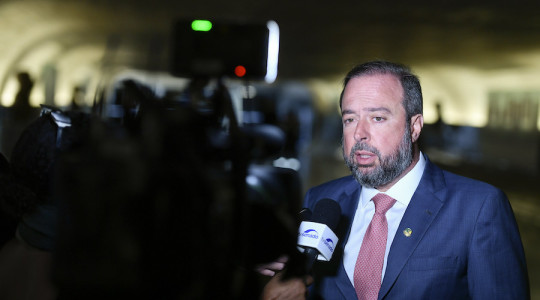
Brazil and Saudi Arabia are discussing investments in sustainable mining and the energy transition, according to Brazilian Minister of Mines and Energy, Alexandre Silveira.
Attending the World Economic Forum in Davos, Switzerland, Silveira met with the Saudi ministers of investments, Khalid Al-Falih, and industry and mining, Bandar Alkhorayef.
“Last night, I had a bilateral meeting with the minister of investment and the minister of mining from Saudi Arabia to discuss essential investments for Brazil in energy transition, as this is our great vocation,” Silveira told CNN.
Silveira said he had discussed the energy transition “vigorously” with the Saudis, and representatives from the Kingdom expressed their interest in investing in the energy and mining sectors in Brazil.
Continue reading.
#brazil#brazilian politics#politics#saudi arabia#economy#mining#foreign policy#alexandre silveira#mod nise da silveira#image description in alt
2 notes
·
View notes